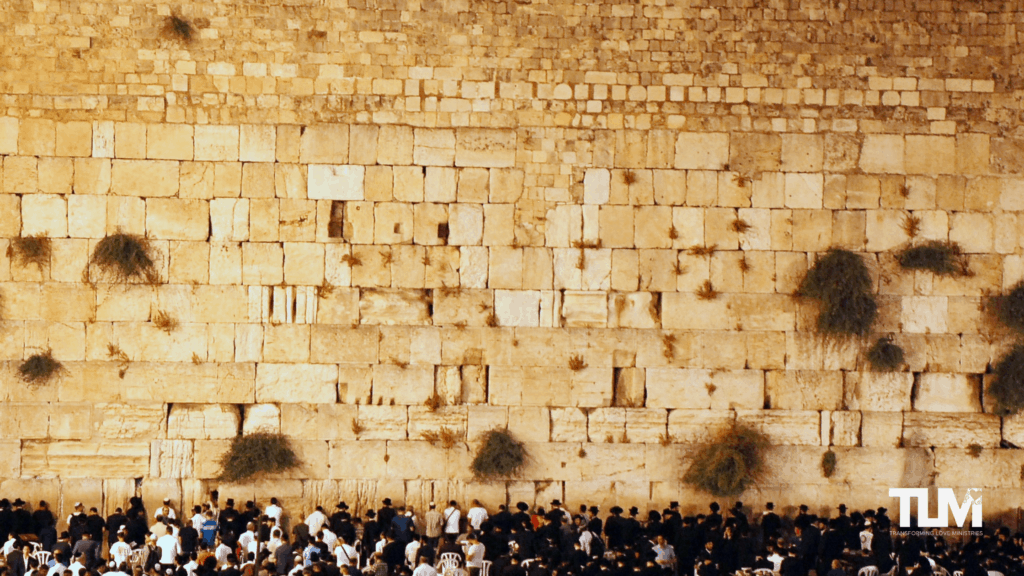Last week, we began to look at the life of Nehemiah and gain some insight into his character and love for God. We took apart his prayer and saw how we could improve the way we pray. This week, let’s see where that prayer ended up taking him! Read Nehemiah 2:1-20.
So where does Nehemiah’s prayer led him – right where he needs to be! However, if you go back, you will see Nehemiah’s prayer was not answered immediately. In fact, it was months later. Nehemiah’s story starts “in late autumn” and we now find him “early the following spring.” And his prayer is about to be answered!
Early the following spring, in the month of Nisan, during the twentieth year of King Artaxerxes’ reign, I was serving the king his wine. I had never before appeared sad in his presence. So the king asked me, “Why are you looking so sad? You don’t look sick to me. You must be deeply troubled.” … (verses 1-2)
The fact that the king notices Nehemiah’s countenance says something about their relationship. Servants were not necessarily ‘noticed,’ they were tolerated. Cupbearers, however, held special significance. Not only did they serve the king his cup, but they became confidants to the king. And yet, as close as Nehemiah was to the king, he had a healthy respect for his position and the king’s authority because the Scriptures state at that moment he was “terrified” (verse 2).
Can you imagine? This is the moment Nehemiah had asked for – the king had noticed him, and his opening was present. He dared not utter a wrong word or phrase. This was his ONE shot, his one chance to make a difference. Can you see him taking a deep breath and begin?
…but I replied, “Long live the king! How can I not be sad? For the city where my ancestors are buried is in ruins, and the gates have been destroyed by fire.” The king asked, “Well, how can I help you?” With a prayer to the God of heaven, I replied, “If it please the king, and if you are pleased with me, your servant, send me to Judah to rebuild the city where my ancestors are buried.” (verses 3-5)
I wonder if there was a pause at this point? I wonder if Nehemiah had a sense of the next part of the conversation or whether he was white-knuckling it? Then comes the reply:
The king, with the queen sitting beside him, asked, “How long will you be gone? When will you return?” After I told him how long I would be gone, the king agreed to my request. (verse 6)
Do you think Nehemiah silently breathed a sign of relief or held in all his emotions until he was well outside the king’s court? Regardless of his expression, with ease this conversation proceeds and the king says, “yes!” With confidence, Nehemiah also asks for letters from the king, which would allow him safe passage through the areas he must travel. And God, in God fashion, shows up and allows favor to fall upon Nehemiah. Because of Nehemiah’s obedience, He takes care of everything, for in verse 9, Nehemiah tells us the king showed great favoritism:
…The king, I should add, had sent along army officers and horsemen to protect me. (verse 9)
Then, as with everything that is done for the Lord, opposition begins to rear its head.
But when Sanballat the Horonite and Tobiah the Ammonite official heard of my arrival, they were very displeased that someone had come to help the people of Israel. (verse 10)
But Nehemiah proceeds. He arrives in Jerusalem, anxious to see what needs to be done. Cautiously, he restrains himself from discussing his thoughts with the Jewish leaders until he has surveyed the land.
So I arrived in Jerusalem. Three days later, I slipped out during the night, taking only a few others with me. I had not told anyone about the plans God had put in my heart for Jerusalem. We took no pack animals with us except the donkey I was riding. (verses 11-12)
Once he is ready, he gathers the Jewish leaders and tells them why he has come.
But now I said to them, “You know very well what trouble we are in. Jerusalem lies in ruins, and its gates have been destroyed by fire. Let us rebuild the wall of Jerusalem and end this disgrace!” Then I told them about how the gracious hand of God had been on me, and about my conversation with the king. They replied at once, “Yes, let’s rebuild the wall!” So they began the good work. (verses 17-18)
Without hesitation, probably with renewed hope, purpose, and faith, the Jewish leaders agree to help rebuild the wall. Then like the darkness that it is, negativity attempts to enter the picture.
But when Sanballat, Tobiah, and Geshem the Arab heard of our plan, they scoffed contemptuously. “What are you doing? Are you rebelling against the king?” they asked. (verse 19)
I love Nehemiah’s response.
I replied, “The God of heaven will help us succeed. We, his servants, will start rebuilding this wall. But you have no share, legal right, or historic claim in Jerusalem.” (verse 20)
He is bold; he is confident; he will not be deterred! (He also counts himself among his people – “We, his servants.”) He is committed, surrendered, and available to God. Today, take some time to observe your own life and relationship with God. Are you committed? Surrendered? Available? Has God laid something on your heart? And if so, are you holding back or are you shouting it to all who will hear? This week, give it to God, and allow Him to show up and show off in your life!
Blessings!
Holy Bible. New Living Translation copyright© 1996, 2004, 2007, 2013 by Tyndale House Foundation. Used by permission of Tyndale House Publishers Inc., Carol Stream, Illinois 60188. All rights reserved.



